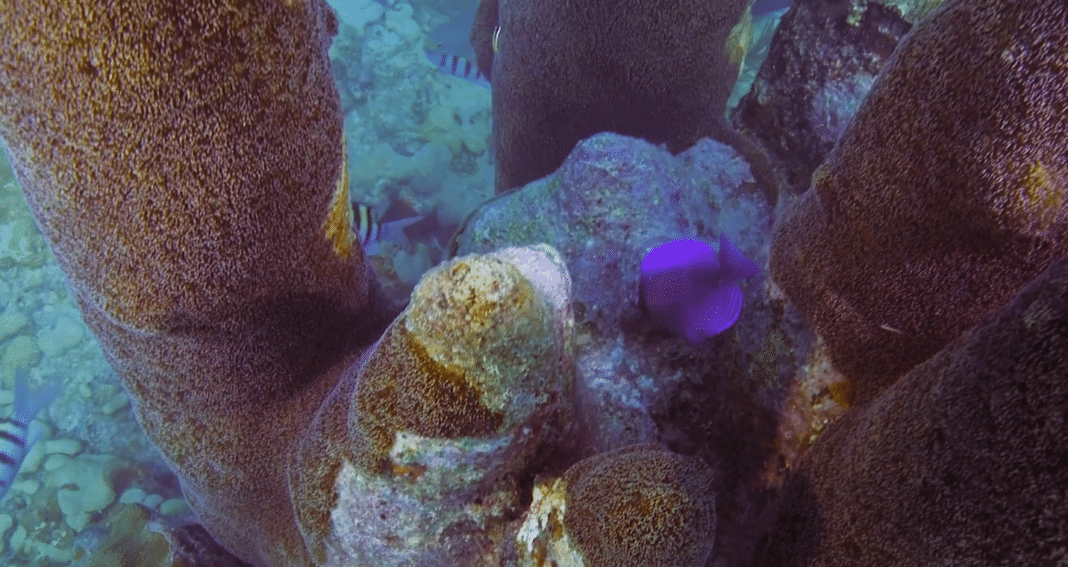The Cayman Islands government is asking for Divemasters to help with putting antibiotics on reefs to protect them from Stony Coral Tissue Loss Disease.
The disease is “impacting over 20 species of reef-building corals on Grand Cayman’s reefs,” according to the Caymans Department of Environment:
“As part of that response effort, the Ministry of Health, Environment, Culture, and Housing has approved the implementation of several short-term, 6-month service contracts for diving and disease response support. Qualified divers able to commit a minimum of 3 days per week to the SCTLD response effort are invited to apply to Rebecca.Jordison@gov.ky by April 17th, 2021.
“Applicants must be available to work on Grand Cayman. Salary is CI$75 [US$90] per day, paid monthly, with no benefits.”
To qualify, divers must have:
• SCUBA Certification to Divemaster or above and/or evidence of 500+ dives.
• Dive and health insurance; Divers Alert Network recommended (DAN).
• Ability to learn to identify coral species & coral diseases, preparation and application of experimental topical antibiotics, and removal and care of coral.
• Ability to lift dive tanks and similar weights.
• Ability to work a 7.5 hr day on the water.
• Available a minimum of 3 days per week (M-F) to commit to the project.
Preference will be given to Caymanians as well as:
• Persons with an academic and practical marine sciences background and the ability to identify coral species.
• Persons with prior experience and training with the DoE in responding to SCTLD.
• Persons available five (5) days per week (M-F) to commit to the project
To apply, click here.
Other Ways To Help
If you’re a recreational diver and are planning a trip to the Caymans and want to help prevent the spread of this disease to other parts of the islands, specifically Cayman Brac and Little Cayman, be aware that Stony Coral Tissue Loss Disease can survive on your snorkel or dive gear for extended periods and can be transferred among reefs.
To that end, here are some tips for combating the disease’s spread:
* Inspect snorkel and dive gear and equipment and remove debris
* Keep repetitive diving to one geographic location each day
* Decontaminate snorkel and dive gear after each use with 1% bleach solution in water
* Decontaminate snorkel and dive gear between sites, islands, and sensitive areas
* Disinfecting stations can be found at your nearest dive operator
Any sightings of SCTLD can be reported to the DoE online using the Epicollect app or by sending a message to the SCTLD Hotline at 926-0680.

